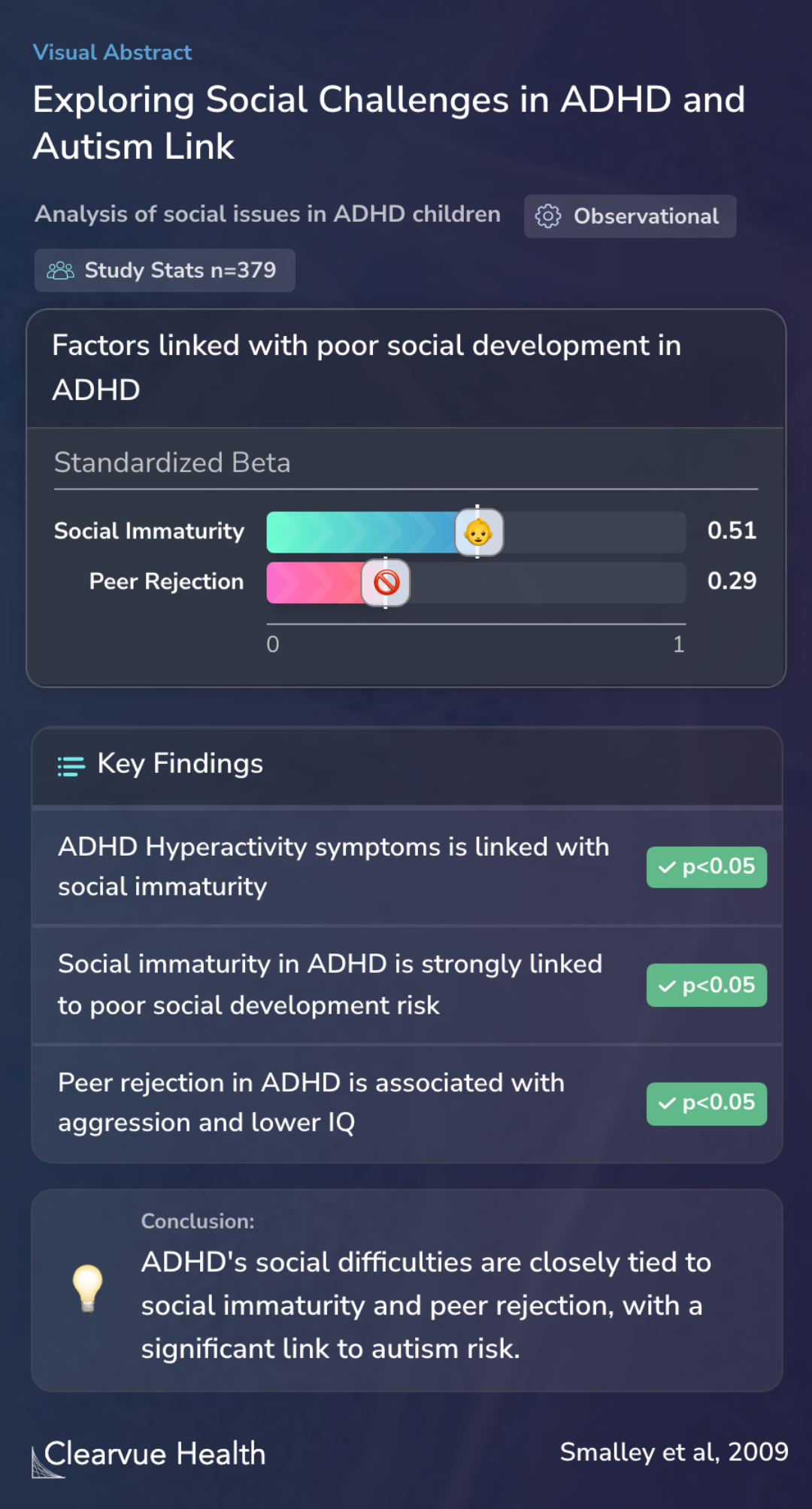Social functioning difficulties in ADHD: association with PDD risk
Exploring Social Challenges in ADHD and Autism Link
Carpenter Rich E, Loo SK, Yang M, Dang J, Smalley SL

Objectives
The study explored the range and causes of social challenges in individuals with ADHD, considering their connections to other social behavior disorders like autism or PDD. Despite ADHD's known social hurdles, the intricacies and origins of these issues remain underexplored, particularly their link to autism or PDD.
Although social difficulties are a common feature of Attention-Deficit Hyperactivity Disorder (ADHD), little is known about the diversity of social problems, their etiology, or their relationship to disorders of social behavior, such as autism or Pervasive Developmental Disorder (PDD).
Methods
In a study involving 379 children and adolescents diagnosed with ADHD, the researcher delved into their social dynamics using a widely recognized assessment tool, the Child Behavior Checklist. The analysis identified two main social difficulty areas through advanced statistical techniques: Peer Rejection and Social Immaturity. Further investigation was conducted into a 'PDD risk' factor, established through eight specific items from another screening tool, to understand its association with the identified social difficulty factors.
In 379 children and adolescents with ADHD, social functioning was assessed using the Child Behavior Checklist (Achenbach, 1991). Factor analysis and structural equation modeling revealed two factors that we labeled Peer Rejection and Social Immaturity. A factor reflecting 'PDD risk' was ...
Results
The findings revealed a significant correlation with both Peer Rejection and Social Immaturity factors, though the link was notably stronger for Social Immaturity. This aspect was also tied to a higher incidence of hyperactive symptoms. On the other hand, a high Peer Rejection score was connected with increased aggressive behavior and a lower IQ among the ADHD participants. These results underline the complexity of social challenges in ADHD, highlighting different facets and their associations with other behavioral aspects.
There was a significant association with both factors, but the association was much stronger for the Social Immaturity (Standardized Beta [beta ] = .51) than Peer Rejection (beta = .29) factors. Social Immaturity was also associated with a greater number of hyperactive symptoms while hig...
Conclusions
The study concludes that social difficulties within the ADHD population may arise from two distinct sources: social immaturity and peer rejection. Notably, social immaturity exhibited a strong connection with the risk of PDD. These insights stress the need for a comprehensive assessment and intervention for diverse social functioning issues in ADHD children, especially for those showing signs of PDD risk. The findings also echo the broader research landscape, suggesting the nuanced interplay between ADHD and autism spectrum disorders and the potential of social skills training in mitigating ADHD's social challenges.
The findings suggest that within ADHD, social difficulties may stem from two distinct sources—social immaturity and peer rejection—with the former strongly associated with PDD risk. These results underscore the importance of assessing and addressing diverse social functioning issues in c...
Key Takeaways
Context
Other studies have found connections between ADHD and autism, though they are distinct disorders. One such study highlighted differences in how children with ADHD and those with autism spectrum disorders respond to delayed monetary rewards, with ADHD affecting reward processing differently.
Other studies have looked more closely at what might cause social skills deficits in children with ADHD. One study found that language skills may play a role: